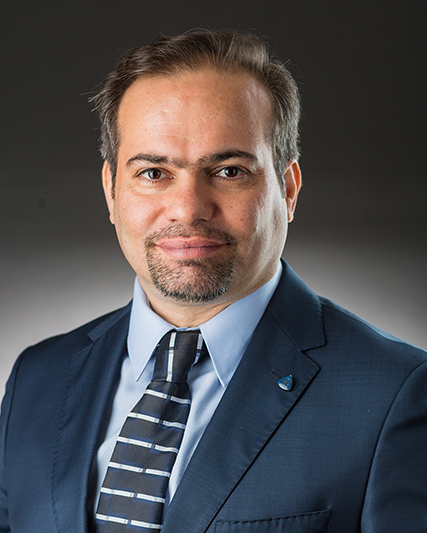Arkansas Tech University faculty member Dr. Seyed Ehsan Hosseini has been recognized as one of the leading research scientists in the world for a fifth consecutive year.
Hosseini is included on the Elsevier Stanford list of the most cited scientists globally for 2024, which was published on Monday, Sept. 16. He was also included on the list in 2020, 2021, 2022, and 2023.
In order to qualify for the Elsevier Stanford list, a researcher must be among the top 2 percent most cited scientists in the world.
Hosseini is an associate professor of mechanical engineering at ATU.
In 2020, Hosseini led a research team that earned an Arkansas Department of Transportation grant to conduct an experimental investigation of a hydrogen fuel cell engine in a lightweight vehicle. NASA and the Arkansas Space Grant Consortium have also provided funding for his sustainable energy research, including the development of a drone that is powered by a fuel cell.
“I strive to remain open to learning from my successes and failures in the classroom and to learning something important about myself or about mechanical engineering,” said Hossieni. “We need to train our students with enough practical engineering skills to start their careers right after graduation. In addition, we need to teach them enough fundamental knowledge to enjoy lifelong learning.”
Hosseini’s interest in energy-related research projects led him to establish a combustion and sustainable energy laboratory at ATU. He has published more than 100 scientific papers in the energy and thermofluids fields, and he edited the 2022 book “Fundamentals of Low Emission Flameless Combustion and Its Applications.” To complete this book, he coordinated the contributions of 46 distinguished professors and researchers from renowned universities worldwide.
He is also the author of the 2023 book “Fundamentals of Hydrogen Production and Utilization in Fuel Cell Systems,” which was published by Elsevier. The book has been adopted as a textbook for hydrogen and fuel cell technology courses.
The Elsevier Stanford list of most cited scientists utilizes data from Scopus — a curated abstract and citation database of peer-reviewed literature — to measure the impact of researchers around the globe.
Learn more about ATU’s engineering programs at www.atu.edu/engineering.






